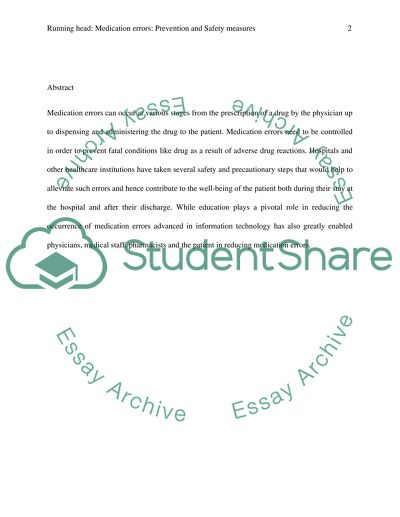Cite this document
(“Medication errors: Prevention and Safety measures Assignment”, n.d.)
Medication errors: Prevention and Safety measures Assignment. Retrieved from https://studentshare.org/nursing/1467858-fundamentals-of-the-nursing
Medication errors: Prevention and Safety measures Assignment. Retrieved from https://studentshare.org/nursing/1467858-fundamentals-of-the-nursing
(Medication Errors: Prevention and Safety Measures Assignment)
Medication Errors: Prevention and Safety Measures Assignment. https://studentshare.org/nursing/1467858-fundamentals-of-the-nursing.
Medication Errors: Prevention and Safety Measures Assignment. https://studentshare.org/nursing/1467858-fundamentals-of-the-nursing.
“Medication Errors: Prevention and Safety Measures Assignment”, n.d. https://studentshare.org/nursing/1467858-fundamentals-of-the-nursing.


